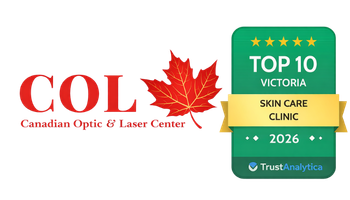Rosacea is a long-term skin condition that typically affects the face. It results in redness, pimples, swelling, and small and superficial dilated blood vessels. Often, the nose, cheeks, forehead, and chin are most involved. A red, enlarged nose may occur in severe disease, a condition known as rhinophyma. Some people say that having Rosacea keeps them from feeling confident at work or in social situations. If your Rosacea bothers you or has gotten worse, talk to your doctor. Getting treatment can help your skin look and feel better. And it may keep your Rosacea from getting worse.

Other symptoms you may get are:
- Stinging and burning of your skin
- Patches of rough, dry skin
- A swollen, bulb-shaped nose
- Larger pores
- Broken blood vessels on your eyelids
- Bumps on your eyelids
- Problems with seeing
What is the etiology?
It is not known exactly what causes rosacea. These may be the reasons:
- Your genes. Rosacea often runs in families.
- Blood vessel trouble. The redness on your skin might be due to problems with blood vessels in your face.
- Sun damage could cause them to get wider, which makes it easier for other people to see them.
- Mites. They’re tiny insects and normally lives on your skin and usually isn’t harmful. Some people, though, have a heightened sensitivity to the mites, or more of these bugs than usual.
- Bacteria. A type called H. pylori normally lives in your gut. Some studies suggest this germ can raise the amount of a digestive hormone called Gastrin, which might cause your skin to look flushed.
Rosacea often flares when something causes the blood vessels in the face to expand, which causes redness. Things that cause a flare-up are called triggers. Common triggers are exercise, sun and wind exposure, hot weather, stress, spicy foods, alcohol, and hot baths. Swings in temperature from hot to cold or cold to hot can also cause a flare-up of Rosacea.
